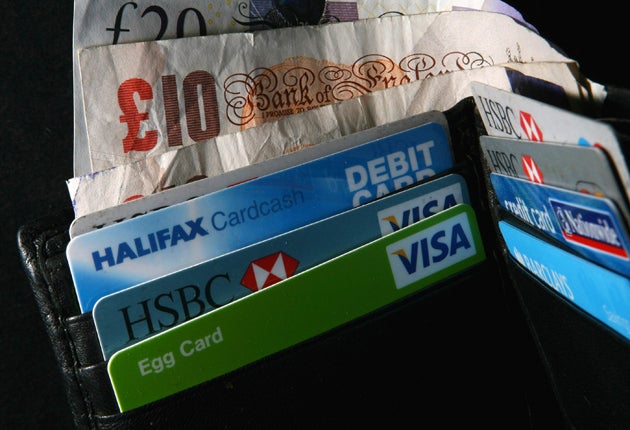Credit card firms ready to do business again
More 0 per cent deals are in the offing, says Chiara Cavaglieri

After more than two years in the doldrums, it seems the credit card market is gearing back up, with a marked increase in the number of cards offering a 0 per cent rate to get people to transfer their balances. Are consumers really facing an easier time of it, or should they be watching out for pitfalls?
"Providers now feel ready to do business again in the current economic conditions and are actively trying to attract new customers," says Michelle Slade from comparison site Moneyfacts.co.uk.
At the start of 2010, there were a measly three cards offering a 0 per cent introductory deal on purchases of 10 months or more. Today, that figure stands at 11. Similarly, the number of cards offering 0 per cent for 10 months or more on balance transfers has shot up from 64 to 72. Among the new deals launched this year, stand-outs include Virgin Money's 12/12 MasterCard which offers 0 per cent for 12 months both on new purchases and balance transfers, as well as the 16-month 0 per cent balance transfer deal from Yorkshire Bank and Clydesdale Bank launched in May.
Consumers have also been tempted with improved offers from lenders including an extra two months at 0 per cent on the Barclaycard Platinum purchase card and an extension for Halifax All in One MasterCard users from 9 to 10 months at 0 per cent on balance transfers and new purchases. Despite the new and improved offers, however, providers are still operating very tight lending strategies and only applicants with a squeaky clean record are getting the nod on the best buys.
"Credit card providers are really focusing on the credit quality of their lending and, in many cases, this means existing customers," says David Black from financial analysts Defaqto.
Although 0 per cent deals are on the up so are interest rates on new purchases. The average rate now stands at 18.7 per cent APR; since the beginning of the year, several providers have upped their rates including Capital One Bank by 5 per cent, Sygma Bank by 2 per cent and Egg by 1 per cent.
Consumers can expect this trend to continue once new rights for credit and store card users take effect at the end of the year. The most notable of these new rights concerns payment hierarchy – the order in which credit card users pay off different forms of debt. Currently, with the exception of Nationwide, Saga and the Co-operative Bank, most lenders operate a negative payment hierarchy. This means that they repay the cheapest debt first, typically the 0 per cent deals, leaving more expensive interest such as purchases and cash withdrawal until last so that they accrue more interest.
From 2011, providers will have to use repayments towards the most expensive debt first.
"The US has already made these changes and as a result they have seen charges such as balance transfer fees rise to about 5 per cent. In the UK the average balance transfer fee is 3 per cent, but I'm sure this will be one of the first things to be hiked," says Andrew Hagger from Moneynet.co.uk.
To avoid being stung in the meantime, consumers are advised to have a separate card for balance transfers and for purchases. Alternatively, opt for a credit card which is already operating a positive payment hierarchy such as the Nationwide credit card.
Get a free fractional share worth up to £100.
Capital at risk.
Terms and conditions apply.
ADVERTISEMENT
Get a free fractional share worth up to £100.
Capital at risk.
Terms and conditions apply.
ADVERTISEMENT
Other top tips include avoiding cash withdrawals which can attract rates of nearly 30 per cent plus a typical fee of 3 per cent. This is even more important for overseas withdrawals as some cards will charge an additional foreign currency loading fee of between 2.75 per cent and 2.99 per cent. The Post Office, Saga and Santander have cards charging no interest worldwide, while Nationwide BS makes no charge in the EU.
"Gambling transactions and transfer of funds from your credit card to your bank account (which are known as money transfers) are also treated as cash and attract a fee of between 3 per cent and 4 per cent," warns Mr Hagger.
Expert View
Michelle Slade, Moneyfacts
"Deals on cards will remain on offer to attract new customers in the hope they will make money from the interest charged at the end of any introductory deal.
"However, when one revenue stream closes for card providers they will find another way to recoup the loss. Rates have already started to increase, with more providers likely to follow suit when they change over to a positive repayment hierarchy. We may also see other charges increasing or being added, such as foreign or low-usage fees."
Join our commenting forum
Join thought-provoking conversations, follow other Independent readers and see their replies
Comments
Bookmark popover
Removed from bookmarks